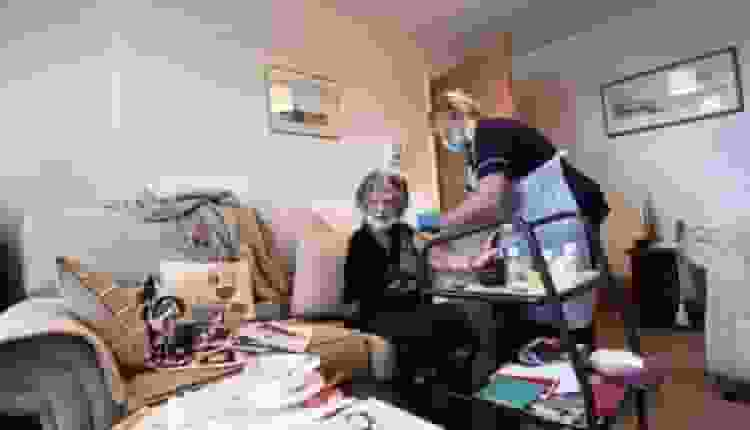
The federal government is recommending that Medicare pay specialists instruct family caregivers on how to take care of activities like bathing and clothing their loved ones, as well as how to use medical equipment correctly.
In April 2021, Patti LaFleur faced an unexpected crisis when her mother, Linda LaTurner, suffered a broken hip from a fall.
Medicare’s Proposed Initiative
Linda, aged 71, had been living with early-onset dementia for seven years, and Patti had been her primary caregiver.
Managing her mother’s Type 1 diabetes, assisting with daily tasks like bathing and dressing, and addressing incontinence had become part of Patti’s routine.
However, the fracture marked a turning point, revealing the lack of preparation for the complex care needs that followed.
Despite her caregiving experience, Patti found herself untrained in essential tasks such as changing her mother’s diapers and preventing bedsores.
The stark reality highlighted a widespread issue faced by countless family caregivers: the absence of proper training and support.
Patti’s story resonates with the experiences of millions of caregivers across the United States. Recognizing this pressing need, the Centers for Medicare & Medicaid Services (CMS) have put forth a groundbreaking proposal.
For the first time, Medicare could authorize payments to healthcare professionals who train informal caregivers in tasks ranging from medication management to the proper use of medical equipment.
Informal caregivers, often family members or friends, play a vital role in caring for older adults who are frail, ill, or disabled.
The proposed program seeks to address the current gap in caregiver training by providing financial support to those who undertake this critical responsibility.
Approximately 42 million Americans provided unpaid care to individuals aged 50 and older in 2020, underscoring the significance of this initiative.
Jason Resendez, President and CEO of the National Alliance for Caregiving, emphasized the importance of the proposed program.
He cited research indicating that almost 60% of family caregivers assist with medical tasks such as injections and feeding tubes.
Read more: EBT Card Holders: Score Amazon Prime For $6.99
Addressing the Training Gap and Shaping Medicare’s Proposal

However, fewer than 30% of caregivers engage in conversations with healthcare professionals regarding their caregiving responsibilities.
A significant hurdle has been the lack of training received by caregivers. A 2019 report published in JAMA Internal Medicine revealed that only 7% of caregivers for older adults have received training related to their caregiving duties.
This deficiency in training has prompted caregivers to seek guidance through unconventional means, such as online videos, as Nancy LeaMond, Chief Advocacy and Engagement Officer for AARP, experienced while caring for her husband with amyotrophic lateral sclerosis.
While the CMS proposal is a promising step toward addressing this gap, several aspects are still under consideration.
Defining who qualifies as a family caregiver and determining the frequency of training are among the key decisions yet to be finalized.
Advocates suggest a broad definition of caregivers, acknowledging that caregiving responsibilities are often shared among multiple individuals.
Anne Tumlinson, Founder and CEO of ATI Advisory, highlights the need to accommodate both paid and unpaid caregivers.
The variability in caregiving tasks and the diverse needs of older adults necessitate a flexible approach to training frequency.
Sharmila Sandhu, Vice President of Regulatory Affairs at the American Occupational Therapy Association, notes that training should ideally take place in the caregiver’s home to ensure practical applicability.
As the proposal progresses, public input remains crucial to shaping its effectiveness. Medicare aims to commence caregiver training payments in the coming year.
The initiative marks a significant milestone in recognizing and supporting the essential role that family caregivers play in maintaining the health and well-being of older adults.
Read more: SNAP Card Issue: Food Stamps Missing? Get Informed

